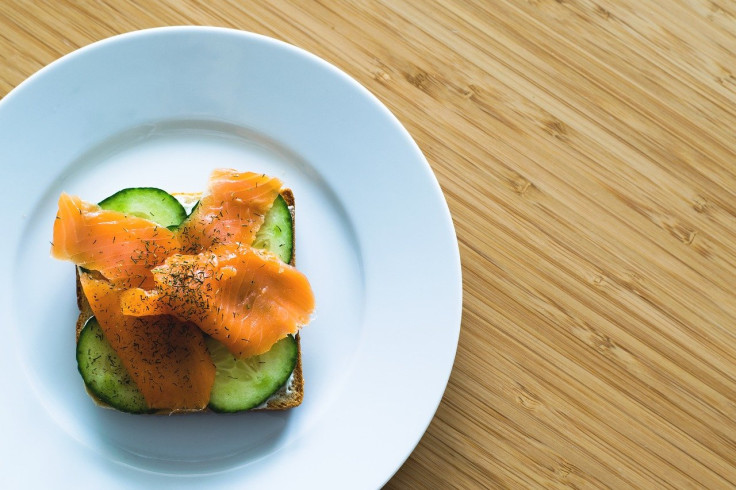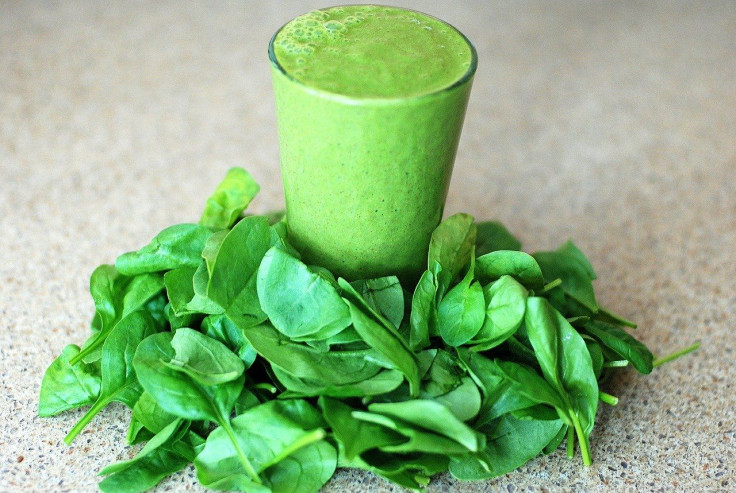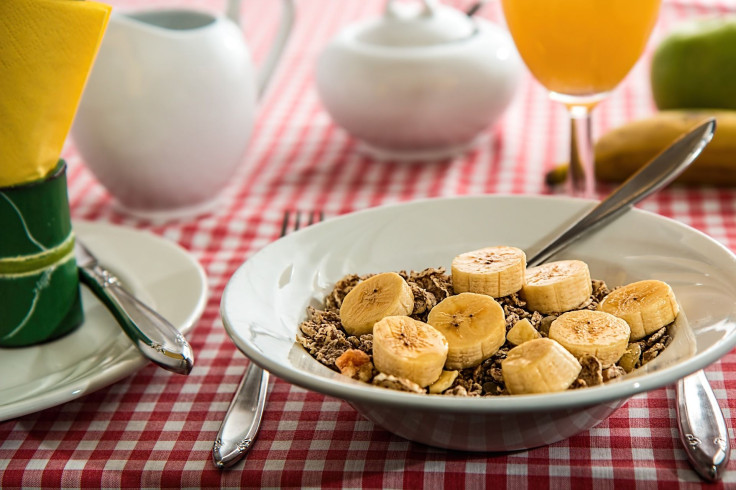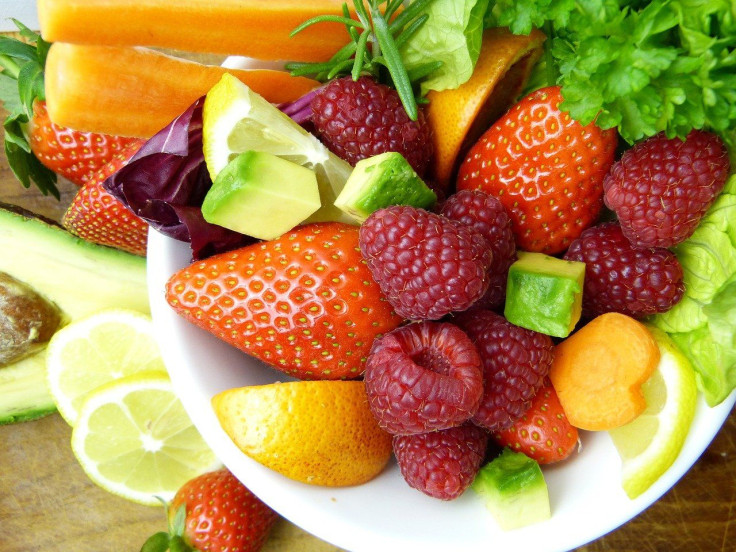10 Scientifically-Proven Ways To Lose Weight Without Exercise
KEY POINTS
- Slowing down is one way to lose weight and enjoy what you eat
- Mindful eating helps you track what you already consumed
- Fluctuations in certain hormones lead to hunger pangs and cravings
A healthy weight for your body type reduces your risk for serious illness. Healthy eating habits also impact your energy levels throughout the day. While exercise in the form of aerobic activity and strength training is recommended by the Department of Health and Human Services for most adults, there are certain situations where opportunities to exercise may be scarce.
Here are ten science-backed ways to lose weight without exercise:
1. Plan When To Eat

Having set meal times a day can help you know when to eat and keep you from mindlessly grabbing for food, said Dr. Charlie Seltzer, MD, a Philadelphia-based weight-loss specialist. Along with planning when to eat, nutritionist Keri Glassman, RD, recommended tracking what you eat, including the smaller random portions you have throughout the day.
A bite here and there may still account for calories adding to your weight when left untracked. Review what you have monitored and be familiar with your habits, such as grazing or stress eating.
2. Serve Food In Smaller Portions

Over time, plates have seen an increase in size. A study with adult participants found that doubling the size of a dinner appetizer resulted in 30% more calorie intake.
It is worth decreasing the size of your plate, especially when consuming unhealthy foods, to lose weight without exercise. A smaller plate can trick your brain into thinking you are eating more, according to studies. This is in contrast to bigger plates that make you want to add more food because a portion looks smaller.
3. Eat Protein First

Protein makes you feel satiated with fewer calories since it affects ghrelin and GLP-1 – hormones that play a role in hunger and fullness. When you eat more protein and eat them first, you will have less room for carbohydrates and other unhealthy food options. A study found that increasing the protein intake from 15% to 30% resulted in participants eating 441 calories fewer, leading to a weight loss of 11 pounds over 12 weeks.
4. Fill Up Your Breakfast Plate With Veggies

Fruits and vegetables contain more water compared to other food groups. This means they have more volume but fewer calories to fill you up. You may also opt to flip the ratio of your meals to have more low-calorie vegetables rather than carbohydrates to avoid overeating refined carbs. This tricks your brain into thinking you are eating more because you have a full plate and eating a larger volume of food, affirmed Dr. Seltzer.
5. Load Up On Fiber

According to registered dietitian Heidi Katte, the recommended daily serving of fiber is 25 grams for women and around 38 grams for men. However, most Americans get fewer than 10 grams daily.
Studies showed that viscous fiber, in particular, helps in weight loss by reducing food intake and increasing fullness. This fiber is only found in plant foods such as beans, oats, Brussel sprouts, flax seeds, asparagus and oranges. When in contact with water, viscous fiber forms a gel, increasing nutrient absorption time and slowing down digestion. That said, drinking lots of water is necessary when eating more fiber.
6. Choose Water Over Sugary Drinks

When counting your sugar consumption throughout the day, make sure you include what is in your sugary drinks. Liquid calories do not have the same effect on fullness as solid food, making it easy to forget the added sugars in your beverages.
Added and untracked sugar intake may be one of the culprits of weight gain. Sodas and other sugary beverages may increase your risk for serious diseases as well.
In general, drinking water can help lose weight without exercise – especially before meals. A randomized controlled trial revealed that drinking half a liter of water resulted in a lessened calorie intake, with adult participants losing 44% more weight in 12 weeks compared to those who did not drink water.
7. Eat Slowly

In a fast-paced world, slowing down is one way to lose weight and fully enjoy what you consume. According to a review of 23 observational studies, fast eaters are more likely to gain weight. Your brain needs time to process that you have had enough to eat. Eating slowly and chewing your food thoroughly is associated with decreased food intake and increased fullness despite the smaller portion size.
8. Keep Unhealthy Foods Out Of Reach

Humans are visual creatures. When unhealthy foods are locked away behind closets or cupboards, they have a lower tendency to catch your eye and invite you to grab them to eat. According to a comparative study linking unhealthy food to weight gain, when high-calorie foods are more visible in the house, people are more likely to gain more weight. Keep a bowl of fruits or other healthier options visible instead.
9. Consume Food Mindfully

Distractions such as mobile phones, computer games or TV shows while eating may lead to the inability to track what you are eating and how much you have already consumed. A review of 24 studies showed that people who were eating distractedly ate 10% more than those who ate mindfully. This might also result in consuming 25% more calories later in the day, according to the same study.
10. Avoid Stress And Sleep Deprivation

Though they are not directly related to eating, your stress levels and sleep quality may help you lose weight without exercise if you know how they affect your appetite. Sleep deprivation disrupts appetite-regulating hormones leptin and ghrelin, while higher stress increases the production of the stress hormone cortisol. With fluctuations in these hormones, you may experience hunger pangs and cravings for unhealthy food, resulting in higher calorie intake.
High stress and low sleep levels may also increase your risk for type 2 diabetes, obesity and other serious health conditions.
© Copyright IBTimes 2024. All rights reserved.





















